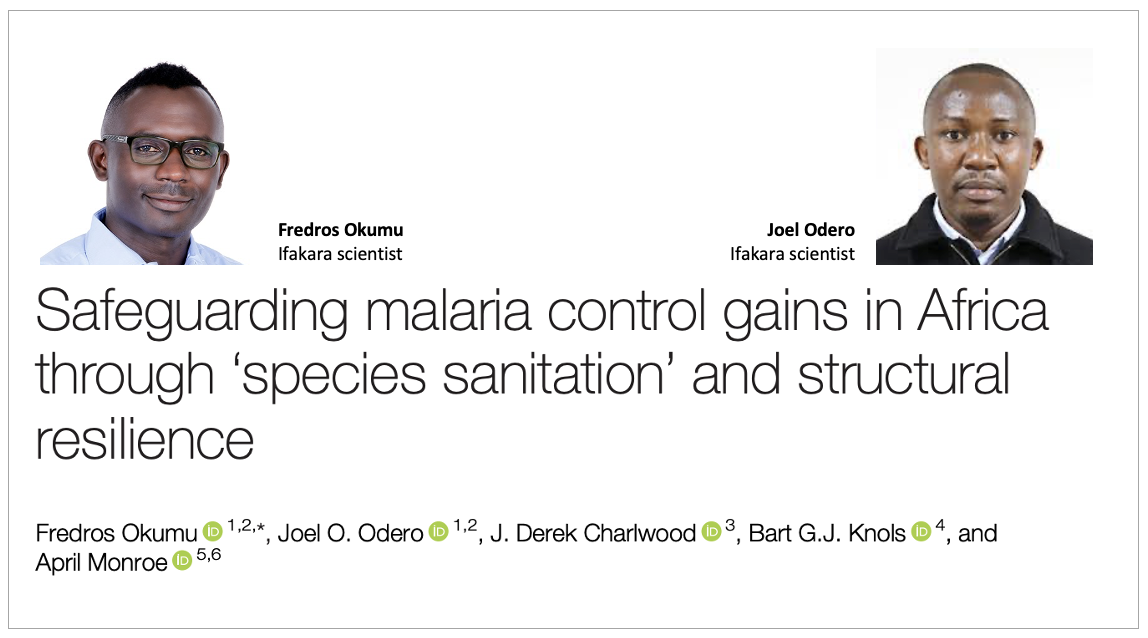
MALARIA: Why Africa needs long-term, locally-driven strategies to win the fight

Despite decades of progress in reducing malaria-related deaths, Africa continues to bear the heaviest burden of the disease. Case numbers remain stubbornly high, and experts warn that current prevention measures—largely centered on commodity-based tools like insecticide-treated nets (ITNs)—are not enough to eliminate malaria.
In a recent opinion piece published on Trends in Parasitology, researchers from the Ifakara Health Institute and partner institutions, call for a sustainable, phased approach that pairs urgent interventions with long-term, locally tailored strategies. The strategy has two main components:
Component 1: Species sanitation
This approach involves exploiting the ecology of malaria-carrying Anopheles mosquitoes to target both their aquatic breeding sites and adult populations. Proven interventions such as larval source management (LSM), indoor residual spraying (IRS), and next-generation ITNs could be deployed aggressively to disrupt transmission cycles.
Component 2: Building structural resilience
Over time, communities can be made less hospitable to mosquitoes through improved housing and better environmental sanitation. Measures include mosquito-proof construction, improved drainage systems, and urban planning measures that reduce breeding grounds.
The role of innovation and governance
The authors also highlight the promise of future innovations—such as gene-drive mosquitoes and longer-lasting vaccines—which could strengthen resilience, especially in poorer communities. However, they stress that technology alone is not enough. Success will depend on human-centred programmes, strong governance, multisectoral partnerships, domestic financing, and robust public health systems capable of rapidly detecting and treating infections.
“Malaria elimination should remain an aspirational but achievable goal,” the paper states, “pursued through long-term planning and carefully sequenced efforts that enable local systems to detect and manage every case, ultimately breaking the cycle of resurgence.”
A call for flexible, context-specific frameworks
Moreover, the authors call for a flexible, context-specific framework to guide countries in prioritising, coordinating, and financing their malaria control efforts. By combining technical mosquito control with community-driven resilience building, they argue, Africa could achieve both immediate relief and lasting protection—finally breaking the cycle of malaria resurgence.
Ifakara scientists behind this piece of work
This opinion piece was authored by a team of scientists led by Fredros Okumu of the Ifakara Health Institute who is also affiliated to the University of Glasgow. Joel Odero, also from Ifakara, played a key role in the team. Additional contributions came from Derek Charlwood of Global Health and Tropical Medicine in Portugal, Bart Knols from K&S Consulting in the Netherlands, and April Monroe from the Swiss Tropical and Public Health Institute.
Read the piece here
